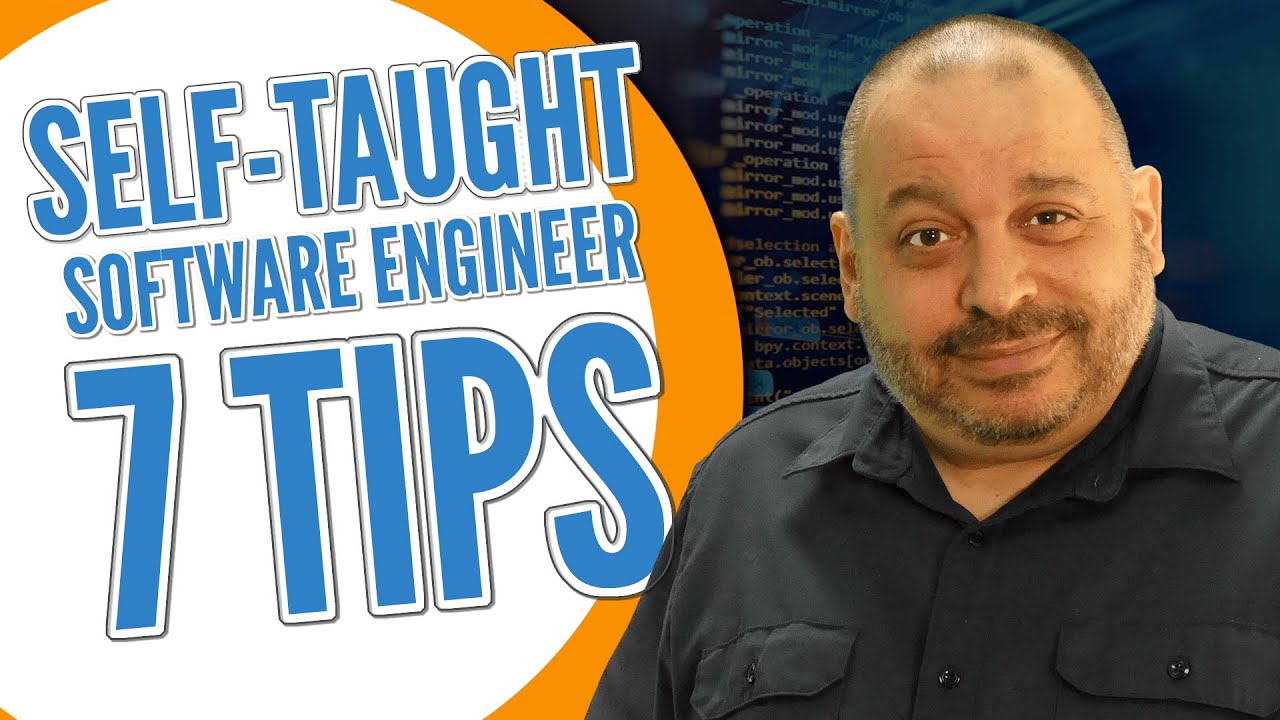In an era defined by rapid technological advancement, the path to becoming a software engineer is no longer confined to the traditional halls of academia. While computer science degrees remain a venerable and valuable route, a burgeoning force of individuals is shaping the industry through an alternative, equally formidable journey: that of the self-taught software engineer. These resilient individuals, driven by curiosity, passion, and an insatiable hunger for knowledge, forge their own curricula, master complex concepts, and build impressive portfolios, proving that formal degrees are not the sole arbiters of talent and capability in the world of code.
This article delves into the fascinating world of self-taught software engineers, exploring what defines them, the motivations behind their unconventional path, the unique strengths they bring to the table, the formidable challenges they overcome, and the invaluable advice for those aspiring to follow in their footsteps.
Defining the Self-Taught Software Engineer
The term "self-taught" can sometimes be misleading. It doesn’t necessarily mean a complete absence of any formal education or mentorship. Rather, it primarily signifies that the core of their learning – the acquisition of programming languages, data structures, algorithms, software development principles, and specific technologies – has been self-directed. These individuals proactively seek out resources, design their learning schedules, and take full ownership of their educational journey, often outside the structured environment of a university computer science program or a coding bootcamp. They might have a degree in an unrelated field, be career changers, or simply have chosen a more flexible and personalized approach to education from the outset.
The Allure of the Unconventional Path
Why do individuals opt for the demanding, yet incredibly rewarding, path of self-directed learning in software engineering? Several compelling factors contribute to this growing trend:
- Accessibility and Cost: University tuition fees can be prohibitive, and the time commitment for a four-year degree might not be feasible for everyone. The internet, on the other hand, offers a vast ocean of free and affordable resources – online courses, documentation, tutorials, and communities – democratizing access to high-quality education.
- Flexibility and Pacing: Self-taught learners can set their own pace, adapting their studies to personal commitments, existing jobs, or family responsibilities. They can dive deep into topics that pique their interest and skim over areas they already understand, optimizing their learning curve.
- Targeted Learning: Unlike a broad university curriculum, self-taught individuals can immediately focus on the specific technologies, languages, and domains that align with their career goals or personal projects. This allows for a highly efficient and relevant learning experience.
- Passion and Intrinsic Motivation: Often, self-taught engineers are driven by an innate fascination with technology and problem-solving. This intrinsic motivation fuels their perseverance through challenging concepts and complex bugs, making the learning process deeply personal and rewarding.
- Career Change and Speed: For those looking to pivot into tech from another industry, the self-taught route can offer a significantly faster track to acquiring job-ready skills compared to pursuing another degree.
The Self-Directed Learning Journey: A Roadmap to Mastery
The journey of a self-taught software engineer is rarely linear, but it typically involves a series of critical steps and practices:
-
Building a Solid Foundation: Before diving into trendy frameworks, a strong understanding of fundamental computer science concepts is crucial. This includes:
- Programming Logic: How computers "think" and execute instructions.
- Core Language Proficiency: Mastering one versatile language (Python, JavaScript, Java, C#, Go, Rust) as a primary tool.
- Data Structures and Algorithms: Understanding how to efficiently store and manipulate data, and solve problems systematically. This is often the bridge between being a "coder" and a "software engineer."
- Version Control (Git): Essential for collaboration and managing code changes.
- Command Line Basics: Navigating and interacting with the operating system efficiently.
-
Choosing a Niche and Specialization: The software engineering landscape is vast. After the fundamentals, self-taught learners often choose a specific area to specialize in:
- Web Development: Frontend (HTML, CSS, JavaScript, React/Vue/Angular), Backend (Node.js, Python/Django, Ruby/Rails, Go, Java/Spring), or Full Stack.
- Mobile Development: iOS (Swift), Android (Kotlin/Java), or Cross-Platform (React Native, Flutter).
- Data Science/Machine Learning: Python (Pandas, NumPy, Scikit-learn), R, SQL.
- Game Development: C++, C# (Unity), JavaScript.
- DevOps/Cloud Engineering: Linux, Docker, Kubernetes, AWS/Azure/GCP.
This focus helps to create a clear learning path and build targeted skills.
-
Leveraging Diverse Learning Resources: The internet is their university. Self-taught engineers meticulously curate their learning materials:
- Online Courses (MOOCs): Platforms like Coursera, Udemy, edX, freeCodeCamp, The Odin Project, and CS50 offer structured curricula.
- Official Documentation: The ultimate source of truth for languages, libraries, and frameworks.
- Books: Deep dives into specific topics, design patterns, and architectural principles.
- Interactive Platforms: LeetCode, HackerRank, Codewars for problem-solving practice.
- YouTube Tutorials and Blogs: Visual explanations and practical walkthroughs.
- Developer Communities: Stack Overflow, Reddit (r/learnprogramming, r/ExperiencedDevs), Discord servers for peer support and knowledge sharing.
-
The Indispensable Power of Projects: This is where theory meets practice. Building projects is the single most critical aspect of the self-taught journey.
- Start Small: Simple apps (calculator, to-do list) to solidify basics.
- Gradually Increase Complexity: Build full-stack applications, contribute to open source, replicate popular websites, or create unique solutions to real-world problems.
- Showcase on GitHub: A well-maintained GitHub profile with diverse, well-documented projects acts as their resume and portfolio.
-
Embracing Community and Collaboration: While self-directed, the journey doesn’t have to be solitary.
- Networking: Attending local meetups, conferences, and online forums.
- Mentorship: Seeking guidance from experienced developers.
- Open Source Contributions: Learning to work in a team, adhere to coding standards, and receive code reviews.
- Teaching Others: Explaining concepts to peers solidifies understanding.
Strengths of the Self-Taught Engineer
Companies are increasingly recognizing the unique value self-taught engineers bring to the table:
- Exceptional Resourcefulness and Problem-Solving: Having navigated their own learning path, they are adept at finding solutions, debugging problems independently, and learning new technologies on the fly.
- Unwavering Self-Discipline and Initiative: The ability to stay motivated, manage time effectively, and push through difficulties without external pressure is a hallmark of the self-taught.
- Deep Practical Understanding: Their knowledge is often forged in the fires of real-world projects, leading to a pragmatic and hands-on understanding of how software is built and deployed.
- Agility and Adaptability: The tech landscape evolves rapidly. Self-taught engineers are naturally wired for continuous learning and quickly adapting to new tools and methodologies.
- Passion and Drive: Their journey is often fueled by genuine interest, translating into a strong work ethic and enthusiasm for their craft.
- Diverse Perspectives: Coming from various backgrounds, they can bring fresh insights and unique approaches to problem-solving within a team.
Navigating the Hurdles: Challenges and Solutions
Despite their strengths, self-taught engineers face specific challenges:
- Lack of Structure and Overwhelm: The sheer volume of information can be daunting.
- Solution: Create a structured learning plan, set realistic goals, break down complex topics, and focus on one area at a time.
- Imposter Syndrome: Doubting their abilities compared to degree-holders is common.
- Solution: Focus on tangible achievements (projects, contributions), seek feedback, and remind themselves of their unique strengths. Everyone, regardless of background, experiences imposter syndrome.
- Gaps in Theoretical Computer Science: While practical skills are strong, fundamental CS concepts (e.g., advanced algorithms, operating systems, networking) might be overlooked.
- Solution: Intentionally seek out resources for these topics (e.g., MIT’s OpenCourseWare, specific books).
- Networking Deficiencies: Missing out on university career fairs or alumni networks.
- Solution: Proactively attend meetups, engage in online communities, contribute to open source, and leverage platforms like LinkedIn.
- Overcoming Employer Bias: Some companies still prioritize traditional degrees.
- Solution: A strong portfolio of projects, an articulate explanation of their learning journey, and acing technical interviews are key. Demonstrate what you can do, not just where you learned it.
Advice for Aspiring Self-Taught Engineers
For those embarking on this challenging yet rewarding path, here are some guiding principles:
- Start with the Fundamentals: Don’t skip basic logic, data structures, and algorithms. They are the bedrock of all software engineering.
- Pick One Language and Master It: Don’t jump between languages. Choose one (e.g., Python or JavaScript) and become proficient before branching out.
- Build, Build, Build: Projects are your resume. Start small, finish what you start, and push your code to GitHub. The act of building is the best teacher.
- Don’t Learn in Isolation: Engage with developer communities, ask questions (after trying to find the answer yourself), and seek out mentors.
- Embrace Failure: Bugs, errors, and incomplete projects are part of the learning process. See them as opportunities to learn and grow.
- Learn How to Learn: The tech world changes constantly. Develop the skill of quickly picking up new languages, frameworks, and tools.
- Understand "Why": Don’t just memorize syntax. Strive to understand the underlying principles and trade-offs.
- Network Strategically: Connect with other developers, attend industry events, and contribute to discussions. Your network is invaluable.
- Practice Explaining Concepts: If you can teach it, you understand it. This also hones your communication skills for interviews.
- Be Persistent and Patient: The journey is long and demanding. Celebrate small victories and don’t get discouraged by setbacks. Consistency is key.
Conclusion
The rise of the self-taught software engineer is a testament to the power of human curiosity, resilience, and the democratizing force of the internet. These individuals are not merely coding; they are architecting their own destinies, proving that a non-traditional background can be an incredible asset. As the tech industry continues to mature, the focus is increasingly shifting from how one learned to what one can do. The self-taught engineer, with their demonstrable skills, relentless drive, and problem-solving prowess, stands as a powerful symbol of this evolution, contributing significantly to the innovation and diversity that propels the digital world forward. Their journey from curiosity to code is not just a personal triumph but a vital component of the modern technological narrative.

